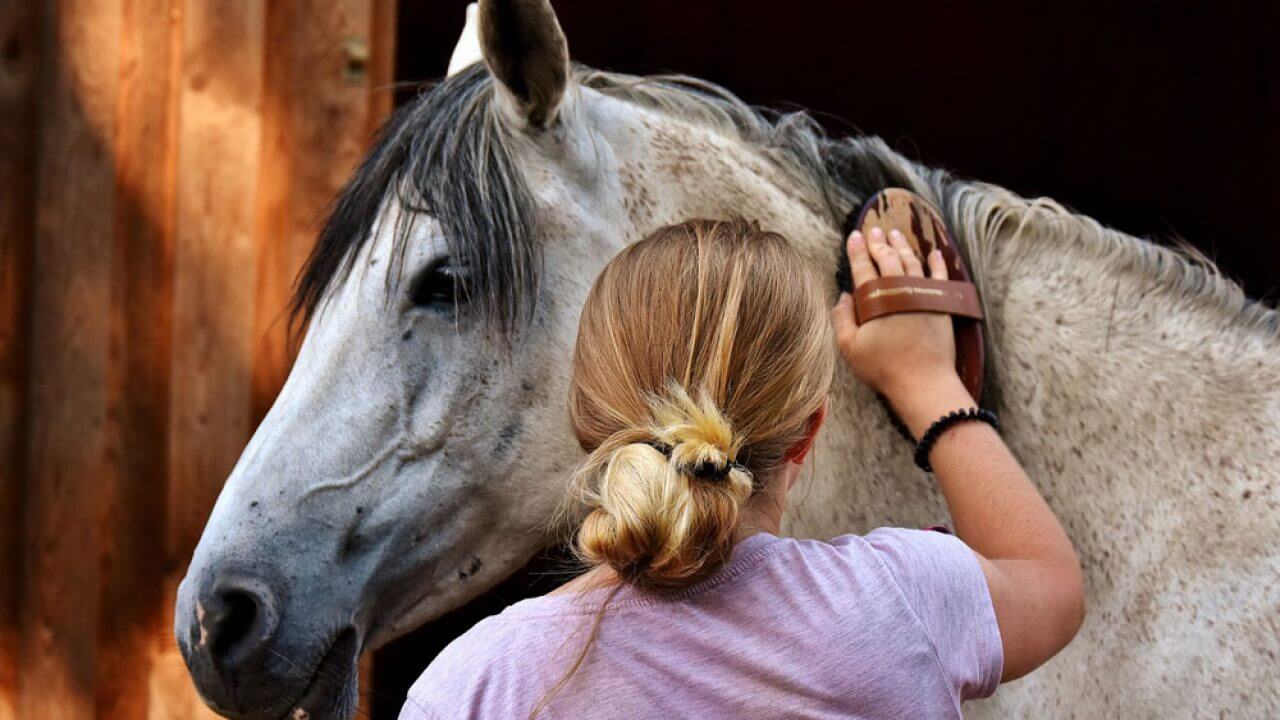For equestrian enthusiasts, understanding the nuances of managing overweight senior horses is crucial. As horses age, they face unique challenges, especially when it comes to maintaining a healthy weight. In this guide, we will delve into the essential strategies and considerations for effectively managing the weight of senior horses.

Understanding the Challenges of Senior Horses
Senior horses, much like elderly humans, experience a range of age-related changes. These changes can impact their metabolism, joint health, and overall vitality. Managing weight in these horses is not just about their diet but involves a holistic approach that includes exercise, healthcare, and lifestyle adjustments.
Why Weight Management is Critical
Maintaining an ideal weight is vital for senior horses as excess weight can exacerbate health issues such as arthritis, insulin resistance, and cardiovascular problems. Proper weight management can enhance their quality of life and longevity.
Identifying Overweight Horses
Recognizing when a horse is overweight is the first step in effective management. Look for signs such as a cresty neck, fat deposits around the tailhead, and difficulty in feeling ribs. Regular body condition scoring can help in assessing the horse’s weight accurately.
Dietary Adjustments for Senior Horses
Adapting the diet of a senior horse is crucial in managing their weight. High-fiber, low-calorie diets are often recommended. Incorporating senior horse feeds specifically formulated to meet their nutritional needs without adding extra calories can be beneficial. For more insights on senior horse nutrition, visit senior horse care.
Importance of Regular Exercise
Exercise plays a pivotal role in managing weight. Regular, moderate exercise can help maintain muscle mass, improve metabolism, and enhance overall health. Tailor the exercise regime to the horse’s capability, ensuring it’s neither too strenuous nor too lax. For exercise tips, check exercise for older horses.
Monitoring Health Indicators
Regular veterinary check-ups are essential in monitoring the health of senior horses. Blood tests can help detect underlying issues such as metabolic syndrome or Cushing’s disease, which can affect weight management strategies.
Hydration is Key
Ensuring adequate hydration is critical for all horses, especially seniors. Dehydration can lead to serious health complications. Learn more about this at senior horse hydration.
Environmental Considerations
Creating a comfortable environment can aid in weight management. Proper bedding and pasture management can contribute to a horse’s comfort and health. For more on these topics, visit best bedding and pasture management.
Implementing a Balanced Routine
Combining diet, exercise, and regular health monitoring into a balanced routine is the best approach to managing the weight of senior horses. Consistency and patience are key, as progress can be gradual.
Stretching and Flexibility
Incorporating stretching routines can improve flexibility and prevent stiffness in senior horses. Explore some effective routines at senior horse stretching.
Conclusion
Effectively managing overweight senior horses requires a comprehensive and compassionate approach. By understanding their unique needs and implementing a well-rounded management plan, you can significantly enhance their quality of life and ensure they continue to thrive in their golden years.

FAQs
How can I tell if my senior horse is overweight?
Look for physical signs such as a cresty neck, fat deposits, and difficulty in feeling ribs. Regular body condition scoring with the help of a vet can provide a more accurate assessment.
What kind of diet is best for overweight senior horses?
A high-fiber, low-calorie diet tailored to the nutritional needs of senior horses is recommended. Specialized senior horse feeds can help meet their dietary requirements without adding excess calories.
How often should senior horses exercise?
Senior horses should engage in regular, moderate exercise tailored to their physical capabilities. It helps in maintaining muscle mass and improving overall health.
This article contains affiliate links. We may earn a commission at no extra cost to you.
